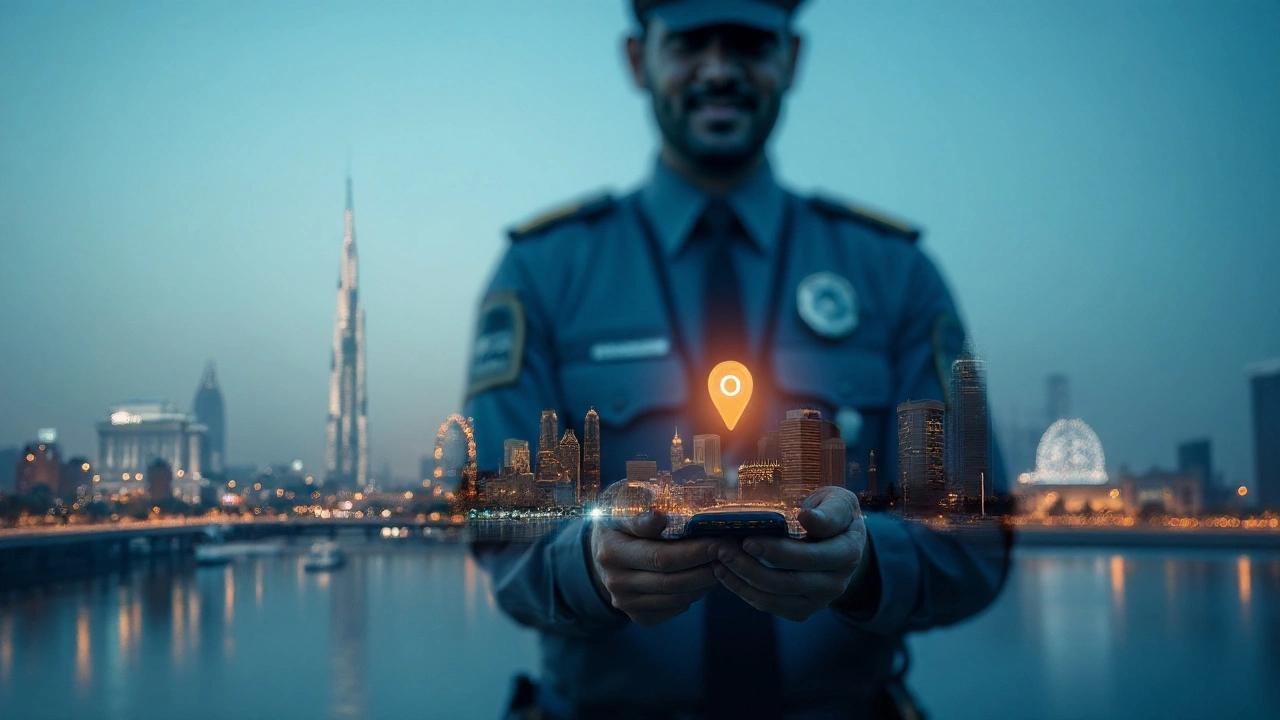Sharjah escorts refers to online ads and services claiming to offer companionship in Sharjah, an emirate in the United Arab Emirates (UAE). The term commonly appears in classified sites, social apps, and messaging channels, but sits directly at odds with UAE criminal and cybercrime laws. If you’re seeing the phrase everywhere, take a breath. This guide translates the legal reality, risks, and safer alternatives-so you stay clear of trouble.
TL;DR
- Sharjah escorts ads clash with UAE law. Prostitution and promoting it are criminal offenses, online or offline.
- Sharjah is stricter than many places you may know. Expect conservative norms, decency rules, and active enforcement.
- Most listings are risky: fake photos, up-front payments, crypto demands, identity theft, or even stings.
- Safer options exist: licensed spas, fine dining, live music in Dubai, and lawful social venues. No “workarounds.”
- If something goes wrong, prioritize safety: don’t argue on the street, call your consulate, and ask for legal counsel.
What the term means in 2025-and why you keep seeing it
Search spikes happen because the internet is flooded with adult classifieds, Telegram channels, and fake “massage” profiles using Sharjah as a tag. Many posts recycle stolen photos and generic bios. The pattern is simple: catchy profile, fast move to WhatsApp, urgent push for deposits, then vanish. The semantic trap is real-what looks like casual companionship is often an illegal offer or a scam.
Sharjah is an emirate of the United Arab Emirates known for conservative laws, a ban on alcohol sales in most contexts, strict decency rules, and a family-first cultural ethos. Unlike some global cities, Sharjah doesn’t have a licensed nightlife scene where this kind of commerce might try to hide. That mismatch is why so many listings sit on the wrong side of the law-and why enforcement is steady.
The law: what actually applies (and how it’s enforced)
UAE law doesn’t dance around the topic. It speaks plainly about prostitution, facilitation, and online promotion.
- United Arab Emirates is a federal country of seven emirates. Federal criminal law applies across all emirates, including Sharjah.
- UAE Penal Code (Federal Decree-Law No. 31 of 2021) criminalizes prostitution, debauchery, and related facilitation. Penalties can include imprisonment, fines, and-for expatriates-deportation. Put simply: paying for sex, organizing it, or profiting from it is illegal.
- UAE Cybercrime Law (Federal Decree-Law No. 34 of 2021) prohibits creating, publishing, or hosting online content that promotes prostitution or vice. Operating or boosting such platforms is a crime. A “harmless ad” on social can still be an offense.
- Anti-Human Trafficking Law (Federal Law No. 51 of 2006) targets recruitment, transport, harboring, or receipt of persons for exploitation, with severe penalties that escalate for organized or cross-border crimes. If an ad masks coercion, it triggers the harshest part of the legal framework.
How enforcement works in practice: police monitor online ads, collaborate with platforms, and run stings. Hotels and apartments often cooperate with ID checks. Immigration status can be reviewed in cases tied to criminal probes. In Sharjah, which is more conservative, the bar for “public decency” is also higher-think clothing norms, public behavior, and cohabitation rules. That creates more touchpoints where a risky situation can spill into legal trouble.
Sharjah vs nearby emirates: what actually differs
There’s a common myth that you can “just go next door.” Don’t bank on that. Law remains federal. What varies is the social setting, licensing, and how visible nightlife is in each emirate.
Dubai is an emirate with licensed nightlife, hotels, and entertainment venues. Even there, prostitution remains illegal, and venues operate under strict licensing and compliance. You’ll find bars and live music, but that doesn’t legalize paid sexual services.
Ajman is a smaller emirate with a quieter scene and looser perceptions around some hotel practices, but federal criminal law still applies to prostitution and online promotion. Don’t confuse relaxed hospitality with legal permission.
| Emirate | Nightlife visibility | Alcohol availability | Hotel guest policy | Escort/prostitution legality | Typical risks |
|---|---|---|---|---|---|
| Sharjah | Low | Very restricted | Strict ID checks; conservative norms | Illegal under federal law | Stings, deportation risk, scam ads |
| Dubai | High (licensed venues) | Widely available in licensed venues | Standard ID checks; venue compliance | Illegal under federal law | Scams, cybercrime, legal exposure |
| Ajman | Moderate | Available in licensed outlets | ID checks; smaller market | Illegal under federal law | Fraud, legal risk, reputation harm |
How shady ads hook you (and how to spot the traps)
The common journey: a glossy profile, a fast switch to encrypted chat, a “deposit to confirm your booking,” and then a sudden silence-or worse, extortion. The photos are often stolen from influencers. The “agency” is just a phone farm switching numbers daily. And the QR code they send? It might load malware.
- Up-front payment pressure: “Limited time,” “driver is waiting,” “room already booked.” Classic scam language.
- Crypto only: irreversible transfers are a huge red flag.
- Too-perfect photos: check reverse image search results. If the same face pops up in five cities, it’s fake.
- Profile hopscotch: Instagram to WhatsApp to Telegram in minutes-by design, to dodge moderation.
- ID swap: requests for passport selfies “for security.” That’s identity theft bait.
- Venue dodging: refusing lobbies, avoiding CCTV, insisting on private apartments. High-risk behavior in Sharjah.
Heuristics that save you: never prepay strangers, never share ID selfies, and never bring unknowns into your accommodation. If an ad names Sharjah, assume higher enforcement and higher scam density.
Safer, legal alternatives if you want a good night
There are plenty of ways to enjoy the UAE without brushing against criminal law. Think “licensed, public, and clearly lawful.”
- Well-rated, licensed spas and hammams: book through hotel concierges or official apps. Ask if the venue is hotel-operated or licensed by local authorities.
- Live music and dining in Dubai: reserve at known hotels or licensed venues. You get atmosphere, privacy, and zero legal headaches.
- Private tours and experiences: desert safaris, art tours, curated food trails. Sharjah has top museums and a respected heritage scene.
- Social apps for conversation: keep it friendly, public, and respectful of local norms. Don’t move into illegal territory.
As a rule of thumb: public, licensed, and transparent beats private, unlicensed, and cash-only every time.
Hotels, IDs, and the “quiet details” visitors miss
Hotels in the UAE take compliance seriously. You’ll be asked for a passport or Emirates ID. Guests are logged. Security cameras and guest lists aren’t theater; they’re standards. In Sharjah, add conservative expectations about dress and behavior in public areas. If someone suggests bypassing the lobby or “sneaking in,” that’s your cue to walk away.
Alcohol is restricted in Sharjah. If you expect a bar-heavy night, plan your evening in Dubai and take licensed transport. Never drive after drinking anywhere. And remember: even if you met someone in a perfectly legal venue, paying for sex remains illegal under federal law.

If things go wrong
If you’ve been scammed online, stop contact, preserve evidence (screenshots, handles, payment receipts), and report to platform support. If you feel threatened, seek help in a public place like a hotel front desk. If you’re questioned by authorities, be polite and factual. Don’t sign documents you don’t understand; ask for a translator and your consulate.
Consulates and embassies can help with legal referrals and translation. Travel insurers often exclude illegal activity, so don’t expect coverage for losses tied to unlawful acts. Your best asset is prevention.
How this topic fits the bigger picture
“Escorts in Sharjah” sits inside a broader cluster: Gulf legal frameworks, online fraud patterns, and tourism do’s and don’ts. If this is your first time in the region, get familiar with decency laws, social media rules, and licensed venue systems. It’s not about fear-it’s about respect and common sense.
Related concepts to explore next
- UAE nightlife licensing and venue rules (city-by-city differences)
- How to verify a licensed spa or wellness venue
- Cyber-safety 101: image search, payment hygiene, and device security
- Public decency and social media posting rules in the UAE
- How hotel guest registration and ID checks work
Authoritative references to look up
For legal texts and policy guidance, check the UAE Government Portal, and public information from Sharjah Police, Dubai’s Department of Economy and Tourism, the National Committee to Combat Human Trafficking, and UNODC. These aren’t casual blog links; they’re the gold standard for what really applies on the ground.
Key entities at a glance
UAE Penal Code (Federal Decree-Law No. 31 of 2021) Defines prostitution-related crimes and penalties applicable across all emirates, including Sharjah.
UAE Cybercrime Law (Federal Decree-Law No. 34 of 2021) Targets online promotion, hosting, and facilitation of illegal content, including prostitution-related material.
Anti-Human Trafficking Law (Federal Law No. 51 of 2006) Criminalizes exploitation and trafficking, with severe penalties for organizers and networks.
Dubai Neighboring emirate with licensed nightlife and hospitality venues; prostitution remains illegal under federal law.
Ajman Neighboring emirate with a smaller hospitality scene; federal laws on prostitution still apply.
Practical checklists
Quick risk scan before you act
- Is someone asking for a deposit, crypto, or gift cards? Stop.
- Are you being pushed to encrypted chat in seconds? High risk.
- Do photos reverse-search to influencers or other cities? Fake.
- Is the meetup in Sharjah with lobby avoidance? Walk away.
- Is any part of the plan illegal under UAE law? That’s your answer.
Safer night-out plan
- Book licensed venues (dining, live music) and keep receipts.
- Use hotel concierges for spa and tour bookings.
- Stick to public, well-lit settings; avoid private apartments.
- Arrange transport ahead of time; never drink and drive.
- Share your itinerary with a friend and set check-in times.
Frequently Asked Questions
Is it legal to hire an escort in Sharjah?
No. Paying for sexual services is illegal under the UAE Penal Code, and promoting or arranging such services-online or offline-is also a crime. Sharjah applies federal law and takes enforcement seriously.
Are the online “Sharjah escort” ads real?
Many are scams or identity theft traps: stolen photos, deposit requests, crypto-only payments, and fast channel switching. Even if an offer were real, participating would expose you to criminal liability in the UAE.
What are the penalties if I’m caught?
Penalties can include arrest, fines, imprisonment, and deportation for non-citizens. Devices and accounts tied to cyber offenses may be examined. Cases can escalate if trafficking or organized activity is suspected.
Is it safer in Dubai or Ajman instead of Sharjah?
No. Federal law applies everywhere. Dubai has licensed nightlife and Ajman is quieter, but prostitution and its promotion are illegal in all emirates. A “safer” city doesn’t turn an illegal act into a legal one.
Can I get in trouble just for messaging with an escort profile?
If communications involve arranging or promoting an illegal service, you could face risk under cybercrime provisions. Also, scammers may extort you or plant malware. End contact and report suspicious profiles to the platform.
How do I enjoy a night out in the UAE without legal risks?
Choose licensed venues (restaurants, live music, hotel bars in Dubai), book reputable spas through hotels, keep everything public, and avoid unlicensed offers. If a plan needs secrecy or cash-only deals, skip it.
What should I do if I’m scammed by an online ad?
Stop contact, collect screenshots and payment records, and report to the platform. If you feel threatened, move to a public place and seek help from hotel staff or authorities. For legal questions, contact your consulate to get referrals.
Do hotels in Sharjah allow visitors to my room?
Policies vary, but expect strict ID checks, guest registration, and conservative norms. Trying to bypass the lobby or security is a major red flag. Don’t invite strangers from online ads-this triggers both safety and legal risks.
Does travel insurance cover losses linked to this?
Usually not. Most policies exclude losses tied to illegal activities. Your best strategy is prevention: avoid deposits to strangers, don’t share ID selfies, and keep all plans inside licensed, legal settings.

Next steps and troubleshooting
- If you’ve already engaged with a suspicious profile: cease contact, block, and document everything. Run a malware scan on your phone if you clicked unknown links.
- If you’re planning a night out: pick licensed venues, book ahead, and arrange transport. Keep plans public and transparent.
- If you’re a new resident: read up on public decency rules and cyber laws. Ask HR or relocation advisors for local briefings.
- If you’re worried about a friend: share this guide, flag legal risks, and suggest safer plans like a hotel dinner, live music, or a day trip to museums and galleries.
Bottom line: the safest plan is the legal plan. In the UAE-especially Sharjah-that’s the only plan that protects your freedom, your finances, and your peace of mind.
